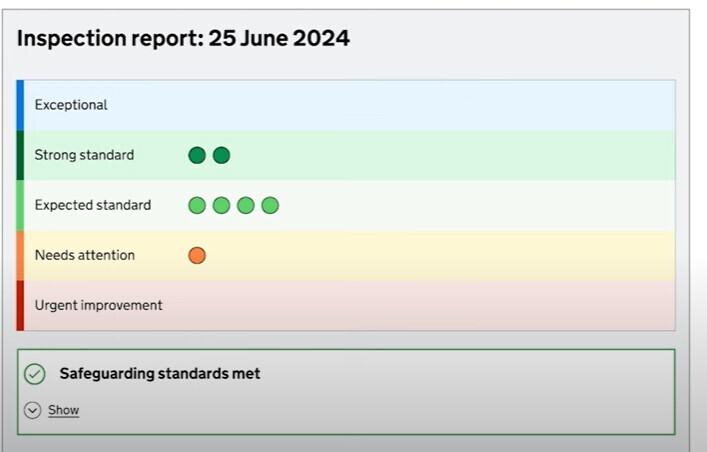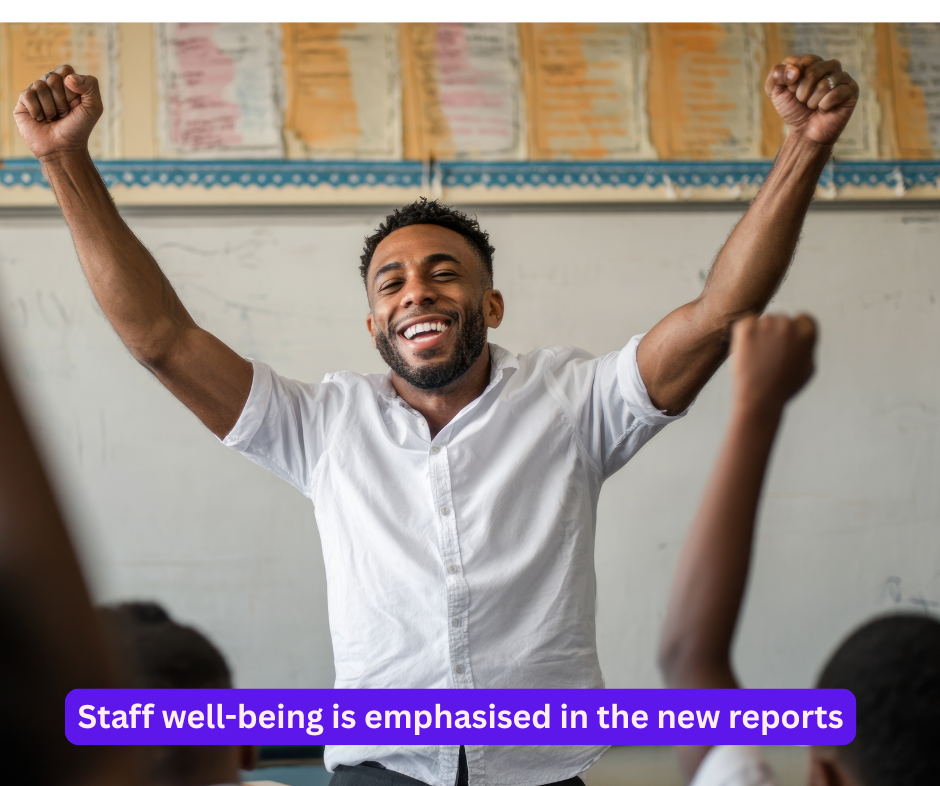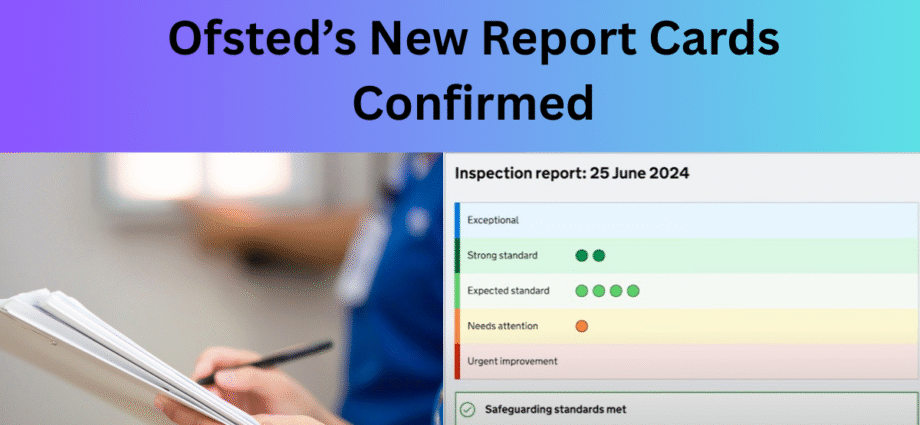Get the low-down on Ofsted’s new report cards and the essential information you need to know as a teacher.
From 10 November 2025, Ofsted is introducing its biggest shake-up to inspections in decades. The familiar single-word overall grades will disappear, and in their place, schools will receive new report cards showing their performance across several key areas.
The aim is to give parents and carers a clearer, more balanced picture of what schools are doing well as well as information on where they need to improve, rather than reducing everything to a single headline grade.
This will have far-reaching implications for all secondary schools – including subject departments like Drama – so it’s vital to understand what is changing and how to prepare.
What’s changing from November 2025
1. Report cards instead of single overall judgments
Schools will no longer receive a single overall grade such as ‘Outstanding’ or ‘Requires Improvement’. Instead, inspections will result in a report card showing:
- The school’s strengths
- Areas where improvement is needed
- Clear narrative comments for each area
This shift is designed to make inspections feel less punitive and more developmental, giving parents a richer view of the school.
2. A new five-point grading scale
Each evaluation area will be graded using a new five-point scale:
- Exceptional
- Strong Standard
- Expected Standard – this is the baseline required
- Needs Attention
- Urgent Improvement – triggers monitoring
This replaces the previous four grades (Outstanding, Good, Requires Improvement, Inadequate) and aims to add nuance and reduce stigma.
3. More evaluation areas – including inclusion
Inspections will now cover six broad areas, which include:
- Curriculum and teaching
- Achievement
- Attendance and behaviour
- Personal development and well-being
- Inclusion
- Leadership and governance
Inclusion is a new area, and inspectors will pay much closer attention to how schools support:
- Disadvantaged pupils
- Pupils with SEND
- Children known to social care
This is a major cultural shift and will require clear evidence of inclusive practice at every level of the school.
In addition, for schools that have nurseries or sixth forms, there are 2 additional categories:
- Early years (if appropriate and schools run nurseries)
- Post-16 provision (for schools with sixth form provisions)

4. Other asssessments
Safeguarding standards will be judged as a standalone feature, and will only be judged as either ‘met’ or ‘not met’
The report will also inform parents what it is like to be a child in this school.
The ‘Next steps‘ section will outline the main things the school can work on to improve, aimed at school leaders.
5. Follow-up monitoring for schools below the expected standard
Schools that fall below the expected standard in any area will have follow-up monitoring inspections to track progress. This is intended to support improvement rather than leaving schools to struggle alone.
6. A greater focus on staff wellbeing
Ofsted has pledged to adopt a more collaborative approach, including:
- Additional inspectors on some visits
- Limits on the number of hours inspectors are on site
- Clearer guidance on what inspectors will and will not expect
- A less high-stakes tone during inspections
This follows Ofsted’s own internal review on staff wellbeing and inspection culture.

What this means for secondary schools
For many secondary schools, this will feel like a major shift but there are many things to think that could be a positive for schools generally.
Potential positives:
- Recognition for strengths even if other areas need development
- Less pressure from a single all-or-nothing judgment
- More emphasis on inclusion, wellbeing, and personal development
Likely challenges:
- More evaluation areas mean more evidence is needed although if you are monitoring your students well, this should be available as part of your everyday culture and procedures
- Possible increase in workload, especially in middle leadership roles
- Staff anxiety while the system beds in
- Ensuring consistency across departments – every subject contributes to whole-school judgments
For Heads of Drama, this means ensuring your curriculum planning, assessment systems, SEND provision, and contribution to personal development are clearly documented and visible to inspectors.
How departments can prepare
While the reforms focus on whole-school judgments, every department’s practice feeds into the bigger picture.
Historically, drama has not been a subject that has received a lot of attention from Ofsted since it is not a core subject. However, drama lessons can and do offer a lot towards helping children with their personal development and well-being in ways that are not grounded in academic results, but in things such as cultural capital, confidence and emotional intelligence. Therefore, don’t make the mistake of thinking that these changes are not relevant to drama.
Use the Inspection Handbook relvant for your institution to find out more about the criteria and grading systems for the assessment areas and audit your contribution based on these.
Here are practical steps drama teams can take:
1. Map your contribution to the evaluation areas
- Show how Drama contributes to curriculum quality, achievement, and personal development
- Document enrichment activities (clubs, trips, productions) as part of your personal development offer
- Capture evidence of SEND support and inclusion in your teaching and casting practices
- Look at your choice of plays and authors you study and see where you can include a broader representation of society
 Show how your work adds to the pupils’ understanding of themselves, others and the world around them.
Show how your work adds to the pupils’ understanding of themselves, others and the world around them.
2. Strengthen inclusion
- Audit your curriculum for diversity and representation
- Record how you adapt for pupils with SEND and disadvantaged students
- Keep examples of successful individual support plans or adjustments you’ve made in rehearsals, assessments or productions
3. Build your evidence base
- Maintain a simple portfolio of work, displays, productions, pupil voice and outcomes
- Keep department self-evaluation forms (SEFs) and development plans up to date and aligned with whole-school priorities
- Gather student and parent feedback on drama provision then reflect on this and make adjustments that are relevant and appropriate
4. Support staff and students’ wellbeing
Talk openly with your team about the changes to reduce anxiety
- Emphasise that inspections are about support and improvement, not judgement on individuals
- Make wellbeing part of your department culture – it will be noticed
5. Communicate clearly with SLT
- Make sure your SLT understands how Drama contributes to the evaluation areas
- Offer to provide short evidence summaries or updates for inclusion in whole-school SEFs and Ofsted preparation documents
Resources and further reading
- DfE announcement on the new report cards:
gov.uk/news/ofsted-confirms-changes-to-education-inspection-and-unveils-new-look-report-cards - Current Ofsted school inspection handbook:
www.gov.uk/government/publications/school-inspection-handbook-eif - SEND Code of Practice:
www.gov.uk/government/publications/send-code-of-practice-0-to-25
Take-aways
The introduction of report cards is designed to make Ofsted inspections less about labels and more about learning. For secondary schools, it’s a chance to showcase strengths, celebrate inclusion, and move towards a culture of continuous improvement.
For drama departments, this is an opportunity to shine – to show how your subject nurtures creativity, resilience, cultural understanding, and student voice, all of which align beautifully with the new evaluation areas.
By starting to gather evidence, strengthen inclusion, and align with whole-school priorities now, you can make sure your department is ready when the new system arrives.
Related posts
AI in drama education – friend or foe?
Teachers pay rise from September 2025
Why drama should be included in school curriculums

